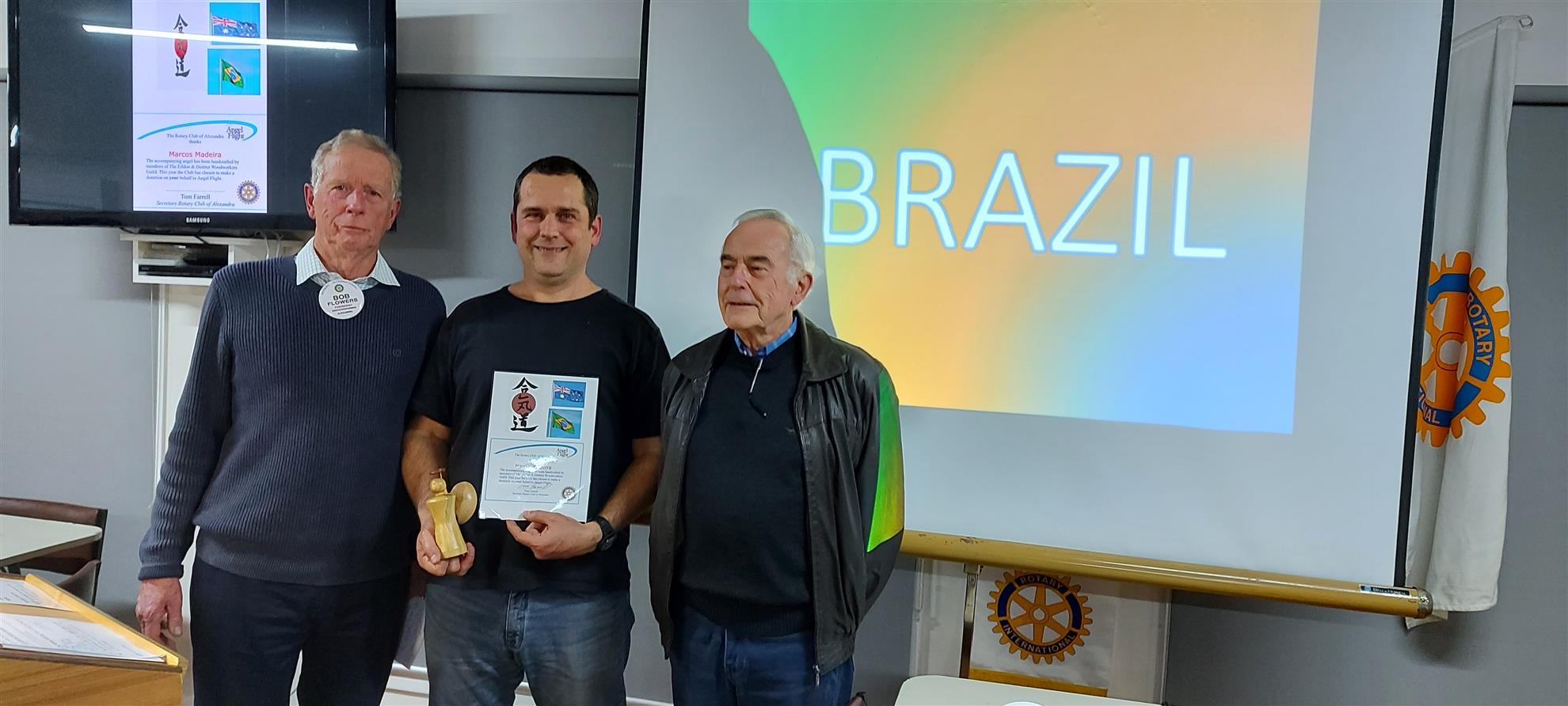Brazil
Marcos Madeira spoke at the Rotary Club of Alexandra this week. He is an outdoor educator, born in Brazil, who spoke eloquently about the country of his birth.
Why is he in Australia?- Because Australia chose him! He spent 2 years looking for work abroad, and OEG answered first, so he now spends his working days introducing young Aussies to the great outdoors. Brazil is an amazingly beautiful place, and he is both proud and ashamed to be Brazilian.
A few facts- geographically, Brazil is bigger than Australia with a population of 215 million people (Australia almost 26 Million). It is a constitutional republic with Executive, Legislative and Judicial arms, but functionally a mess as the various arms jostle for control of the country. GDP in 2019 was 1.84 trillion. The country has abundant forests, agriculture, water, soil and people.
The main language if Portuguese, plus over 300 different first nations (native Indian) languages.
Religion- predominantly Catholic, but many African influences also.
In 1494 the Treaty of Tordesillas divided the New World of the Americas between Spain and Portugal. The Tupi federation comprised 9-10million Indians under their leader Cunhambebe (Quonambec), who resisted Portuguese occupation. They killed the invaders, and literally had them for dinner (cannibals). The Portuguese established a fortress in Rio. To this day, there are still some tribes which have had little or no contact with European settlers.
Economic activity followed several cycles-
Sugar Cane 1550 to mid 17th century
Gold cycle 1640-1760. Paved roads were built to transport gold to the coast, then offshore. It has been said that ‘Gold left holes in Brazil, temples in Portugal, and industries in England.
Coffee cycle 1800-1930 was followed by the
Rubber cycle 1879-1912, with a brief revival 1942-45
Remaining gold reserves exist in the Amazon Forest, so there is conflict between environmental and mining interests.
Slavery was common until relatively recent times. Marcos remembers the same housemaid working in his grandmother’s house for 50 years. African slaves worked on plantations during the sugar cycle, until 13th May 1888. Italians and Germans fleeing post war Europe worked as tied labourers. Racism was prevalent.
Environment 5 main climatic zones; Equatorial, tropical, High altitude tropical, sub-tropical and semi-arid, are linked to 6 biomes or ecosystems; Amazon, Atlantic Forest, Cerrado, Caatinga, Pampa and Pantanal.
Culture – very multicultural, with distinctive music, dance and martial arts, Samba, Bossa Nova Capoeira (Martial art disguised as dance)
The population is friendly and resilient, having endured many crises. There is no financial security. Marcos earns less in Australia, but lives better here. Education in Brazil is underfunded.
Although Marcos misses Brazil and its many shades of green, he is happy that his kids are growing up in Australia, which is where he wants to be.
Our Rotarians found his informative and entertaining.
